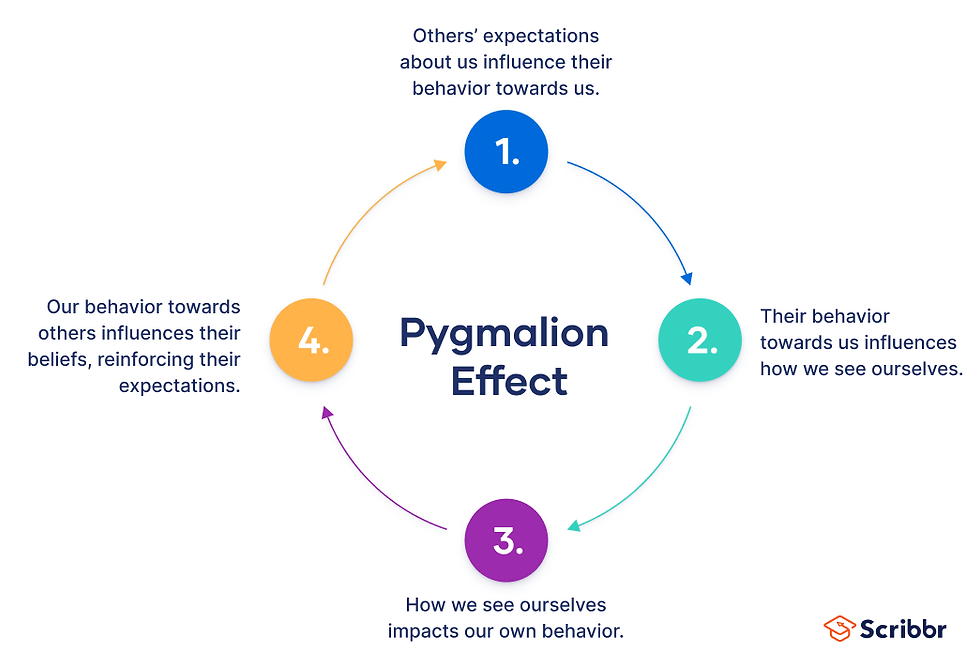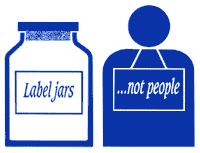The Psychological Impact of Labelling Mental Disorders: Unmasking the Influence on one’s life
- rakheevarma645
- Jul 26, 2023
- 3 min read
Labelling mental disorders is an insidious habit that pervades our interactions, often without us even realizing it. We tend to paint people with broad strokes, unaware of the depths hidden beneath their exteriors. But within each individual, there is a desire to be seen and heard, to have their innermost thoughts and feelings understood, not diagnosed directly, and put under segregation or categories of a particular type or disorder. They long for empathy, not sympathy. After all, mental health struggles and peculiar behaviours are part of the human condition. It is in our very nature to experience the kaleidoscope of emotions, to express ourselves in all our rawness and vulnerability.
Let us break free from the shackles of judgment, and instead, extend a compassionate hand to those who crave understanding and acceptance.

Introduction:
Labels have woven themselves into the fabric of our society, often used to categorise and define individuals based on their characteristics, behaviours, or mental health. While labels can provide a sense of order and understanding, it is crucial to recognize their potential psychological impact. This blog delves into the profound effects of labelling mental disorders, shedding light on the consequences and emphasizing the importance of looking beyond surface judgments.
The Power of Labels:
Labels have become a means to simplify the complexities of human experiences. Society tends to assign categories to individuals based on their traits, abilities, or mental health conditions, aiming to create a framework for understanding and communication. However, these labels can sometimes oversimplify and restrict the true essence of an individual.
The Weight of Expectations:
One significant psychological consequence of labelling is the creation of self-fulfilling prophecies. When individuals are assigned a particular label, they may internalise and conform to the associated expectations. This phenomenon, also known as the "Pygmalion effect" or "Rosenthal effect," highlights how others' expectations can shape an individual's self-perception and subsequent behaviour.
The Pygmalion Effect:
The Pygmalion effect refers to the phenomenon in which an individual's performance and behaviour are influenced by the expectations others have of them. When someone is labelled or perceived in a certain way, they tend to internalise those expectations, adjusting their behaviour and self-perception accordingly. This effect demonstrates the powerful influence that labels can have on shaping an individual's mindset and actions.

Breaking Free from Judgment:
It is crucial to recognize that mental health struggles and peculiar behaviours are a natural part of the human condition. Instead of judgement and segregation, what individuals truly crave is understanding and acceptance. By extending a compassionate hand to those grappling with mental disorders, we create an environment that fosters empathy and support, empowering individuals to navigate their challenges with strength and resilience.
Identity and Self-Concept:
Labels can shape an individual's identity and self-concept. When individuals are labelled or diagnosed with a specific mental health condition, it can become a defining aspect of their identity, overshadowing other dimensions of their personality. This narrow perception can limit self-exploration and growth.
Limitations of Labels:
Labels tend to oversimplify the complexity of human experiences. Each individual is unique, with various emotions, strengths, and weaknesses. Labels may fail to capture the full spectrum of an individual's personality, abilities, and potential for growth. Focusing solely on labels can hinder a comprehensive understanding of a person's multifaceted nature.
Looking Beyond Labels:
To mitigate the negative psychological impact of labelling, it is essential to shift our focus from surface judgments to a more comprehensive understanding of individuals. By embracing empathy and striving to comprehend the depths hidden beneath their exteriors, we can create a space that encourages open dialogue, reduces stigma, and promotes mental well-being. For example,
Person-First Language:
Adopting person-first language emphasises the importance of seeing the person beyond the label. This approach places the individual before their condition, promoting inclusivity and reducing the dehumanising effects of labelling. Person-first language recognizes that individuals are not defined solely by their mental health conditions.

Conclusion:
The psychological impact of labelling mental disorders is profound and far-reaching. It is imperative for us to recognize the potential harm caused by oversimplifying complex human experiences through labels. By acknowledging the power of our words and actions, we can foster an environment of empathy, understanding, and acceptance. Let us strive to unmask the influence of labelling and build a society that values the uniqueness and inherent worth of every individual, irrespective of their mental health.




👍👌